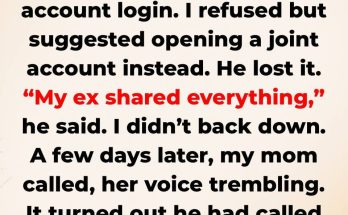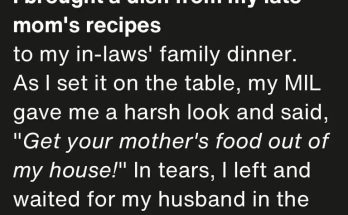
Weddings are meant to be joyful celebrations, but planning them often brings unexpected challenges and family drama. Balancing emotions and expectations can make even the happiest moments stressful. Recently, a reader wrote to Bright Side to share her own story about facing such a dilemma.
Here’s Patricia’s letter:

I’m planning my wedding, and one of the first things I did was ask my dad to walk me down the aisle. To my shock, he said he had “already promised” that honor to my stepsister — who hasn’t even set a wedding date yet — and even asked me to postpone my own wedding so she could go first. It felt like a punch to the gut, as though my own father was choosing her over me on one of the most important days of my life.
Crushed and humiliated, I decided to turn the tables. I thought about uninviting him altogether. But my fiancé had a different idea. He pointed out that kicking my dad out would only make me look bad, and suggested something subtler: his father — my future father-in-law — could walk me down the aisle instead. That way, my dad would have to sit and watch another man take his place, while everyone else quietly wondered why.
The night before the wedding, I took things one step further. In our wedding group chat, I posted a message thanking my father-in-law for stepping up and doing what my own father had chosen not to do. I even called him “the father I never had.” At the time, it felt empowering — like I was taking control of a moment my dad had taken from me.
The wedding itself was beautiful. My father-in-law walked me down the aisle with pride, and for that moment, I felt surrounded by love and support. But afterward, the backlash began. My family accused me of humiliating my dad and of taking things too far. Now, I can’t stop replaying everything in my head.
Did I overreact? Was I too harsh? Should I have just let it go and avoided the drama? I don’t know. I just know that what should have been a happy, uncomplicated memory is now tangled up in doubt and guilt.
Patricia

One thing I learned is that we live with choices in life He made his choice and was very verbal about it. He has to live with that. He missed out on something very important. His loss. Do not let anyone knock you down for your choice. Do not ever regret it. Wishing you many years of making your treasured memories with hubby. Enjoy your life and decisions. Do not feel reposable for his decision. He did his own humiliation. You are not responsible. Again life is about choices. He has to live with that.
Thank you, Patricia, for trusting us with such a difficult story. We’ve put together five pieces of advice to help you navigate this situation with clarity and minimize any further hurt.
Set Boundaries, Not Battles
It’s clear your father hurt you deeply, but sometimes the healthiest response isn’t to retaliate — it’s to set firm emotional boundaries. You could let him know, calmly and clearly, how much his actions wounded you and that you need time and space to rebuild trust. By stepping back without fueling the drama, you protect your peace while showing that his choices have consequences. This doesn’t mean excusing what he did; it means choosing not to let his behavior dictate your happiness. Boundaries can be a quiet but powerful way of reclaiming your control.
Lean Into the Love You Have
In moments like this, it helps to focus on the people who showed up for you. Your father-in-law walking you down the aisle wasn’t just an act of kindness — it was a symbol of the love and support you have in your life. Instead of replaying the guilt, replay the moment you felt surrounded by people who genuinely celebrated you. Celebrate that your future husband and his family have your back, because that love is the foundation of your new life. Gratitude can help shift the focus from what you lost to what you’ve gained.

Have an Honest Heart-to-Heart
Sometimes a direct conversation can do more than silence or sarcasm ever could. Sit down with your dad and tell him how rejected and hurt you felt, without the heat of anger or the pressure of the wedding looming over you. Let him see that your decision came from a place of pain, not spite. This may not fix the past, but it can open a path to understanding — or at least give you closure. Even if he doesn’t apologize, you’ll know you spoke your truth in a way you can be proud of.
Own Your Choices Without Regret
You made a decision in the moment that felt right — one that gave you a sense of strength and validation. Instead of replaying the “what ifs,” acknowledge that you acted based on how deeply you were hurt. That doesn’t make you cruel; it makes you human. Moving forward, try to take lessons from this experience rather than guilt: how you want to respond to pain, what kind of relationships you want to nurture, and where to focus your energy. Growth often comes from moments that feel the messiest.



